Yong Yoon, Jeong Choong-jae and I hope to convince some enterprising Americans to come here and do a movie based on Mr. Jeong’s 2010 book Golden Lily Operation. Why not? Yamashita: The Tiger’s Treasure premiered 20 years ago and did quite well. The stories are similar, addressing how the Japanese (allegedly) looted enormous amounts of Chinese gold and other forms of wealth during their World War II depredations and sent it to Manila in the first instance and Busan in the second. This is a murky and complicated tale involving Japanese, Chinese, American and Korean politicians, military men and spies, and my understanding of it is rather shaky. Mr. Jeong, who was imprisoned between September 2006 and May 2009, and tortured for his efforts to uncover the truth and maybe some of the remaining gold, has a lot of skin in this game if you will forgive the cliché.
Although he lives in Gimpo (site of Seoul’s first major airport) in the northwestern part of the city, he wanted us to visit an unprepossessing restaurant called Bureunbada or “Blue Sea” in Gunja. It is in the northeast, and Mr. Yoon and I were coming from Gangnam on the south side of the Han River. I grumbled a bit as we rode on the subway, but I stopped doing so when he mentioned that Mr. Jeong had invited a North Korean friend. I am always eager to meet people who have escaped that awful prison on the other side of the 38th parallel.
Standing at the top of the subway steps was Lee Ju-seong. He appeared to be in his mid-50s and in good health. I soon learned that Mr. Lee and Mr. Yoon had met several years earlier doing anti-North Korea work up near the border. Mr. Jeong was waiting for us inside the restaurant, the specialty of which is gaetjangeo (eel soup). It is a famous dish from Wando, an island off the southeast coast of Korea which I visited in February 2011.
Mr. Jeong insisted that we have a corner table. The food was hot and tasty, made even better when one of my Korean friends ordered a bottle of makkoli (rice wine). Once our cups had been filled, I called for a toast: “Freedom for North Korea!” Most of the next 45 minutes was devoted to me asking questions or bringing up topics via the bilingual Mr. Yoon and getting on-the-spot reactions from Mr. Lee.
He was a native of Pyongyang and thus had been shielded from the far-worse conditions in remote provinces such as Jagang, Yanggang and Hamgyeongbuk. His father had been killed in an escape attempt, and that brought pressure on the rest of the family. Mr. Lee, his wife and two children took an exhausting 15-day train ride up to the Chinese border (you can zip from Seoul to Busan on the KTX in 2 hours and 15 minutes) in 2006 and managed to get across. They paid a broker 14 million won—a considerable amount of money in North Korea—to bring them to the south. Traveling through China, Laos, Myanmar, Cambodia and Vietnam, they made it here and were given asylum and citizenship. Having done a variety of jobs in the past, he is now in the process of setting up a whiskey factory. I promised to buy a bottle of his best stuff when it opens.
Mr. Lee, whom Mr. Yoon says speaks with a distinct North Korean accent, said he never believed those stories about Kim Il-sung defeating the Japanese almost single-handedly during World War II.
What about Kim Jong-il shooting a 34 (with 11 holes-in-one) the first time he played golf, or that he could change the weather at will? Mr. Lee burst out laughing. “Lies and more lies.”
Did you genuflect when you passed by the gigantic statues of father and son in Pyongyang? “Yes, because if you didn’t they would kill you.”
What do you do in your spare time? “I am a writer. I have written eight books, including one about girls in North Korea who are forced into prostitution.”
Did your family keep nice and shiny framed photos of the so-called great leader and dear leader in your house? “Yes, but sometimes I would spit on them before cleaning them. My wife told me to be careful about that.”
Do you remember all the anti-American propaganda? “Of course. When we had mandatory target practice, we always shot at cut-outs of American soldiers.”
What about the famine of the late 1990s? “I lived through that. I saw terrible things like people eating grass, and dead bodies all over the place. I admit that I stole food to survive.”
Any thoughts about Kim Jong-un? Mr. Lee made the universally known gesture of the slit throat.
When our meal was nearly over, I pulled out my credit card and said I was paying. (At 44,000 won, it was not pricey.) I then explained my reason: “This is to honor you three strong Korean men. You are survivors, and I respect you very much.”
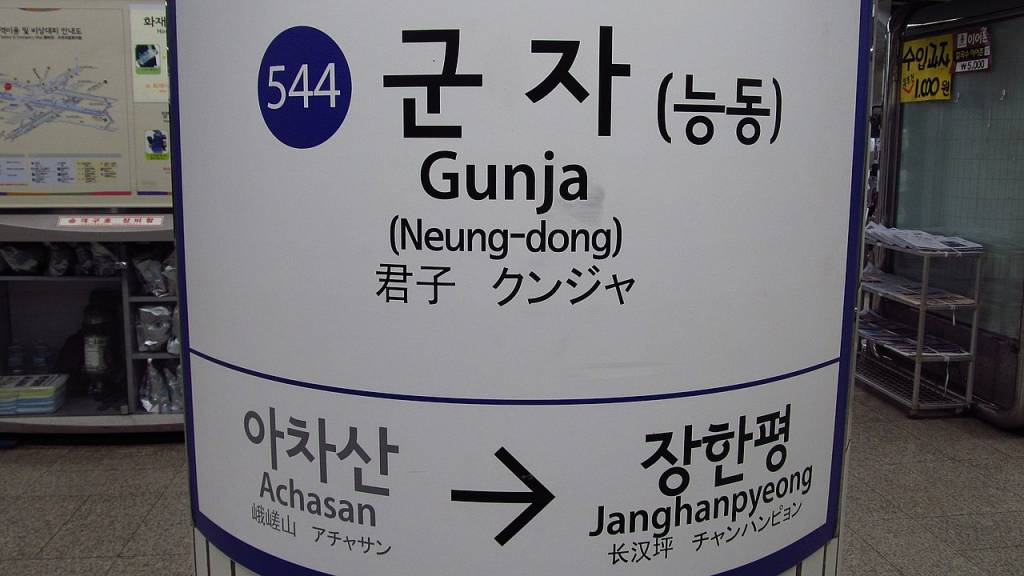
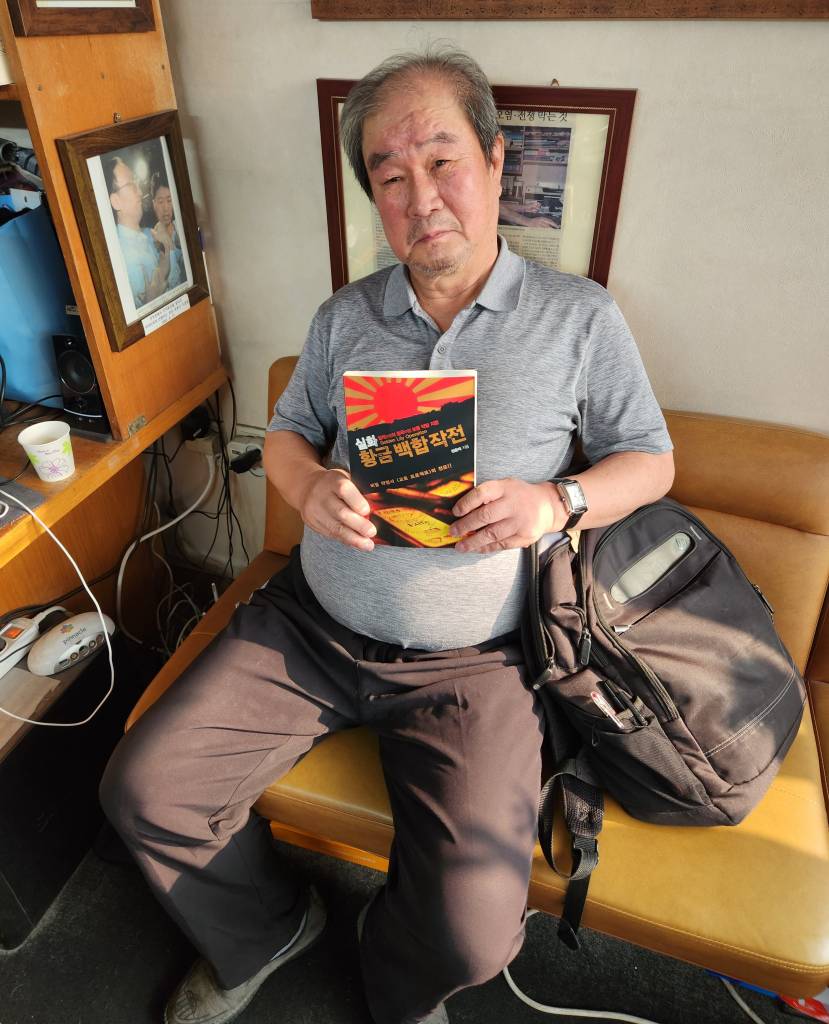
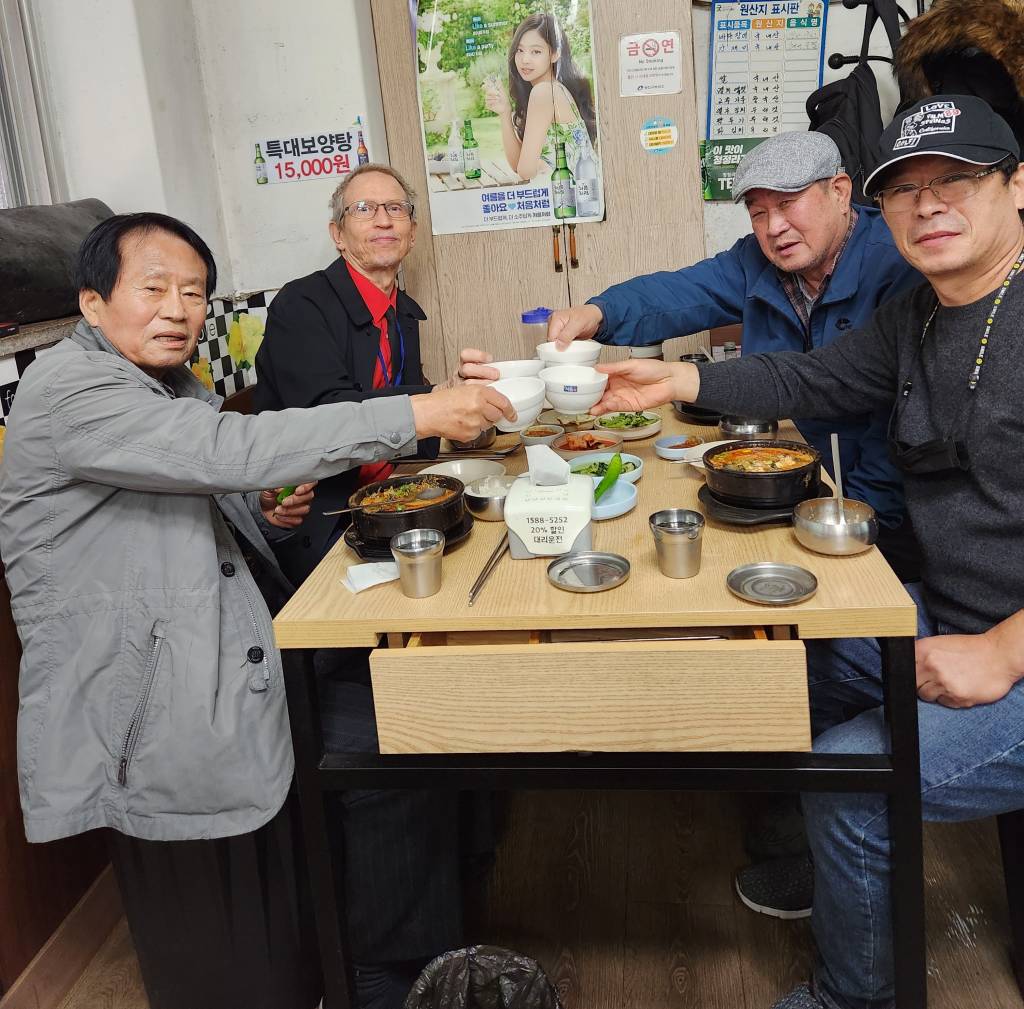
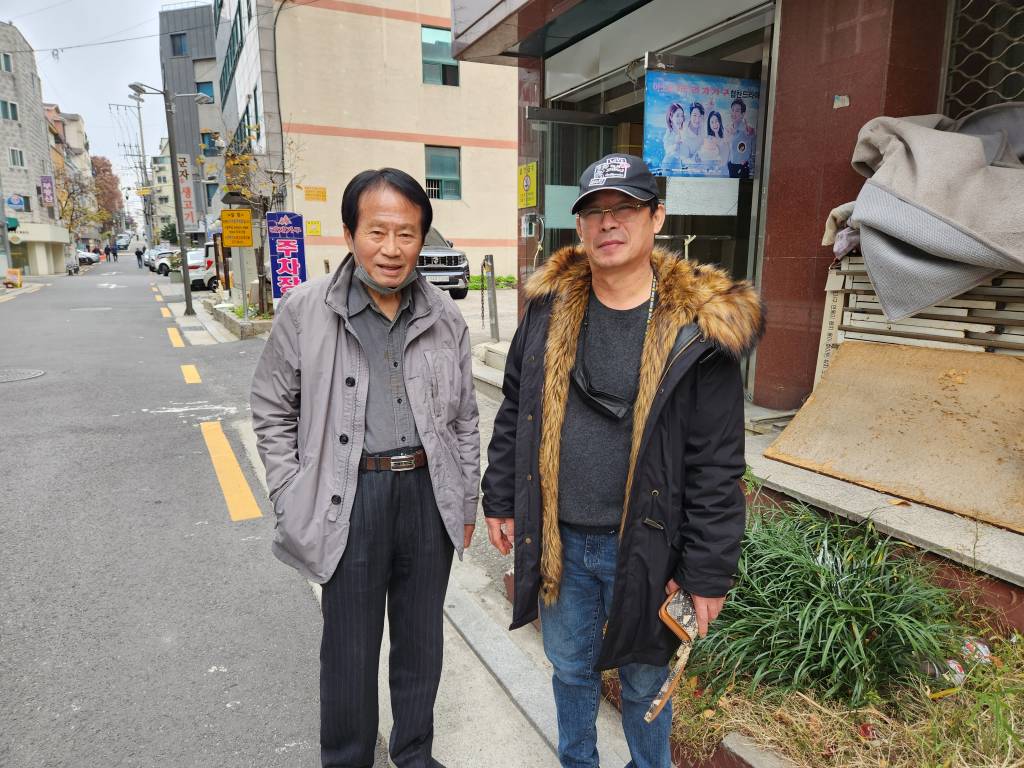

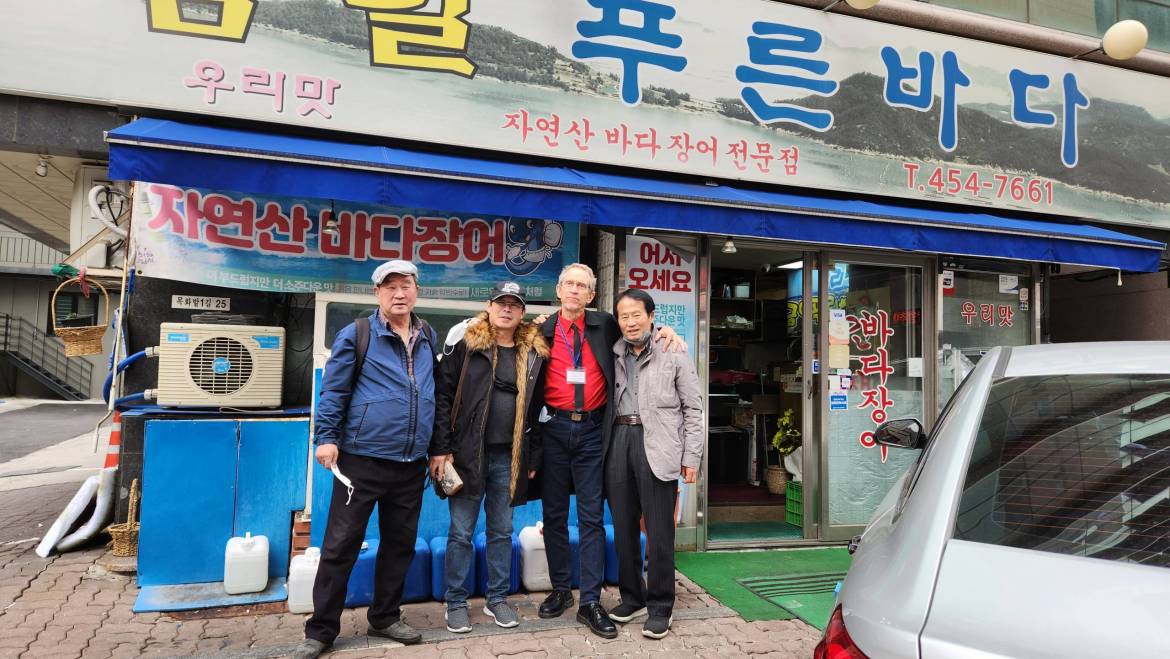
4 Comments
Fantastic story about a small social engagement that yielded volumes about life in a modern hellhole. Many in today’s America of “Give me mine” mentality need to hear of Mr. Lee’s story. Thanks, Richard, for revealing the truth – an evasive commodity – these days.
I very much agree, Darrell. My heart aches for the average person up north. What a monstrous crime the Kims have committed since 1945….
I am convinced that a film is welcome with the theme of this event, it is good for the Korean people to know the reality about many events.
Good point, Elly!! It is quite a story, especially about Mr. Lee
Add Comment